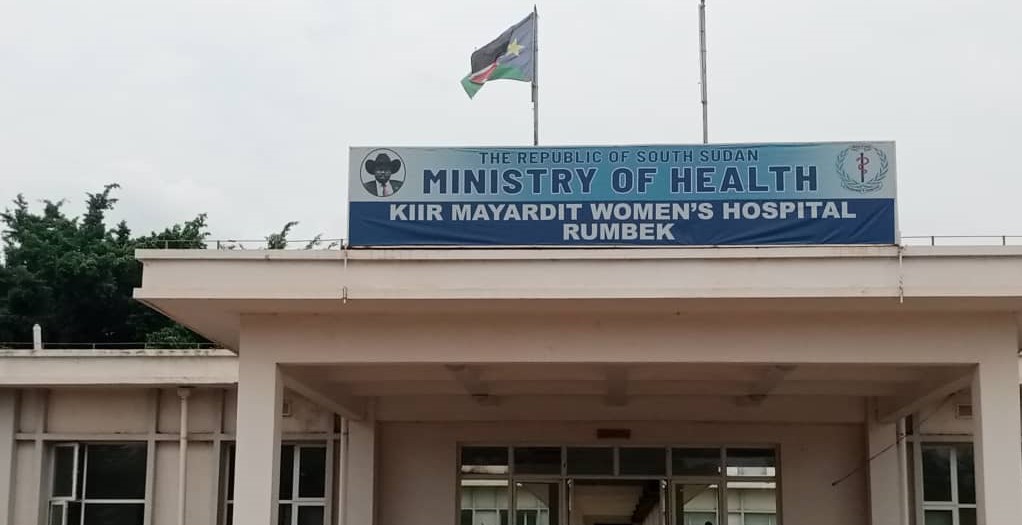Patients at the Chinese-built Kiir Mayardit Women’s Hospital in South Sudan’s Lakes State are praising the medical services they receive, describing the facility as a lifeline for mothers and children.
The hospital in Rumbek, which reopened this year after being shuttered by civil conflict, has become one of the few referral facilities in the state where patients can access reliable medicines and consistent care.
The hospital’s story began in 2012 when the Government of South Sudan, with support from China Aid, laid the foundation for three women’s hospitals across the country. It was equipped by 2014 but was forced to shut down for years due to fighting. It resumed full services in 2024 under a government-led program supported by international partners.
Today, the facility admits 50 to 70 patients daily and is one of the largest and best-equipped hospitals outside the capital, Juba.
For Adeng Malual Machar, the hospital was a blessing. She was admitted in critical condition after her unborn baby stopped moving.
“I was brought with a deficiency of blood to Kiir Mayardit Women’s Hospital,” she said. “But all the prescription medicines were given to me except only one. I appreciate the good help the doctors here have done for me.”
She said she now feels strong and healthy again.
“Whenever you are brought to hospital in a bad condition and you recover, you must appreciate the doctors that saved your life and the life of your baby,” she said. “I am extremely happy. I am asking Almighty God to bless them so that they continue to save many lives of our people.”
Adeng said the difference between Kiir Mayardit and smaller facilities is striking.
“Since I was brought here from Wulu Hospital, there has been a great change. Here, medicines are available, doctors follow up, and patients recover,” she said.
Another mother, Mary Ajak, echoed the praise. Her child arrived severely ill but improved within days.
“When I brought my child, he was very sick, but now he is well,” she said. “The Almighty God will bless the doctors of Kiir Mayardit Women’s Hospital and also bless us.”
Mary added that unlike other hospitals where medicines often run out, Kiir Mayardit Women’s Hospital has been consistent.
“Our children received injections from morning to evening every day until the end of treatment. Medicines for cough, paracetamol, and malaria were all given without stop, and my child is very well now,” she said.
A steady supply of medicines, a rarity in South Sudan’s fragile health sector, is one of the hospital’s key achievements.
Dr. Sidi Maimu Alugu, a nurse at the facility, explained that consignments arrive on time and are sufficient. The medicines are supplied every three months through UNICEF, with funding from the World Bank. Patients receive treatment, including drugs for malaria and anemia, free of charge.
“Whenever we admit patients, we have all the medications they need until discharge,” Alugu said.
Despite the progress, challenges remain. Patient numbers often exceed available space.
“When all the beds are occupied, we sometimes tell patients to bring their own mattresses and sleep on the floor,” Alugu said.
Staff also face salary delays of up to three months, and power shortages threaten services. Though the hospital has modern X-ray and ultrasound machines, most remain idle. The facility’s solar panel batteries are damaged, and running a generator is too costly.
Dr. Donato Akim, the acting medical director, outlined the hospital’s mission to become a national referral hospital for maternity and pediatric conditions.
He noted that since reopening, the hospital has reported no maternal deaths, though some children still die on arrival due to delays in seeking care. “This shows the hospital’s impact in saving mothers’ lives,” he said.
Dr. Joshua Jeremiah, the hospital’s Director General, emphasized that the hospital’s greatest need is sustainable power.
“Modern machines cannot work without electricity. At night, when emergencies occur, lack of power puts lives at risk,” Jeremiah said. “We are urging the Ministry of Health, the state government, and partners to support us in addressing this challenge.”
South Sudan has one of the world’s highest maternal mortality rates, according to the World Health Organization. In this context, facilities like Kiir Mayardit Women’s Hospital are critical.




